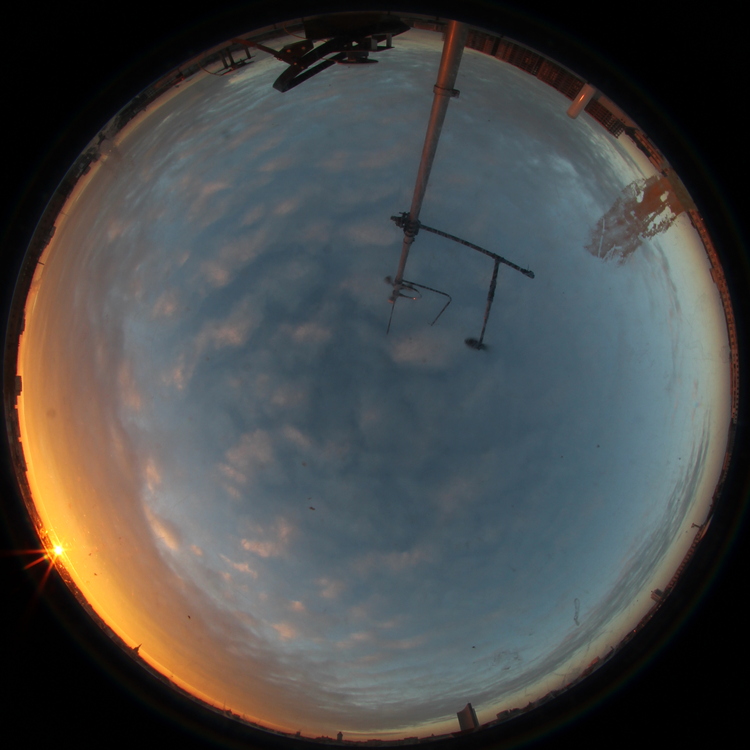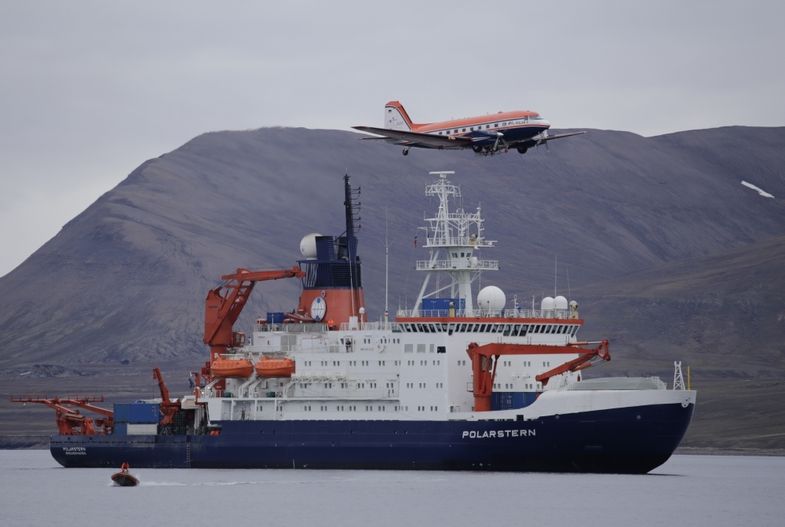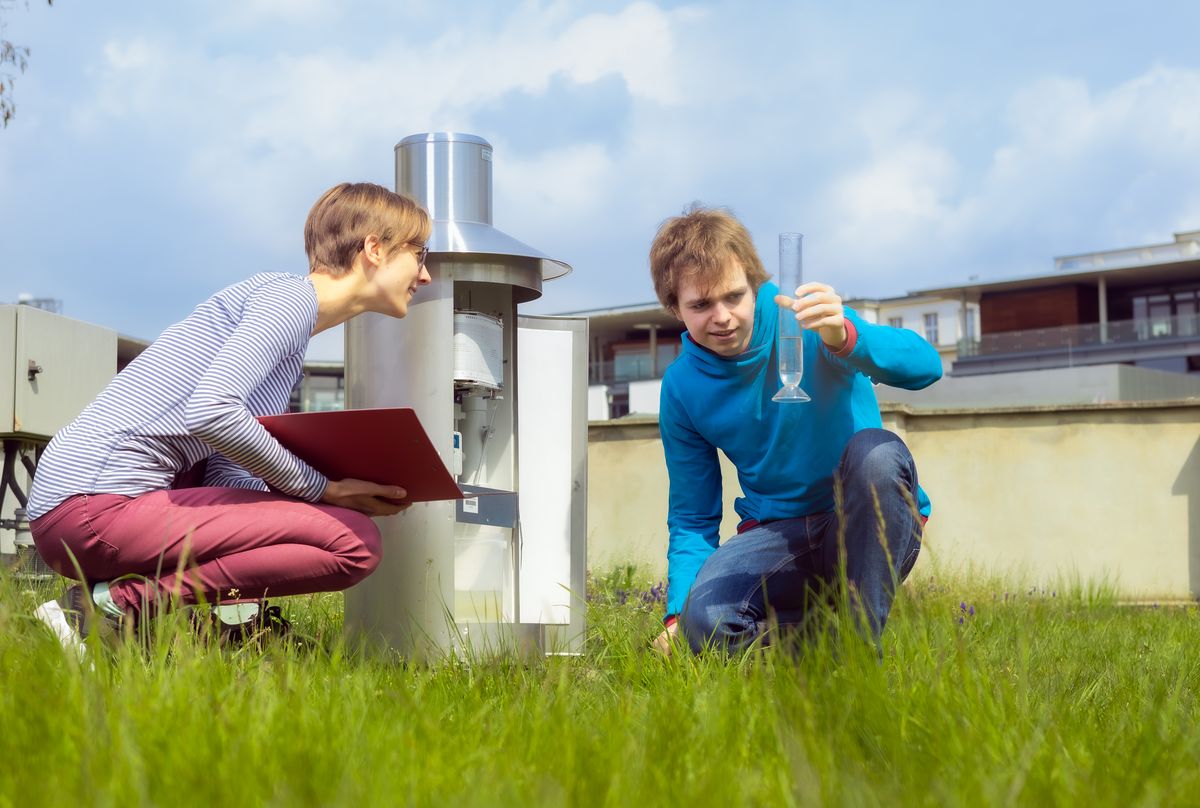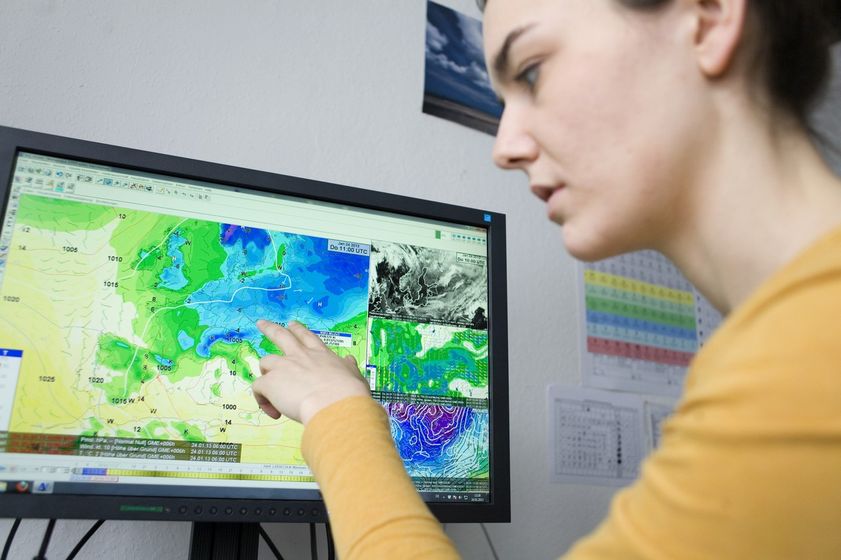At the Leipzig Institute for Meteorology, research and teaching are closely linked. Our institute's research uses global climate and weather models as well as observational data to study processes that govern the development of weather and climate in the troposphere, middle and upper atmosphere.
Our teaching complies with the concept of a professional research-based orientation.
Research profile
We use climate and weather models and apply versatile measurement techniques to study processes that govern the weather and climate in the troposphere but also in the middle and upper atmosphere.
Goals of our research
Our joint goal is a better understanding of the effects and processes of climate change, particularly in the Arctic region. Observational data from satellite-based, airborne and ground-based measurements are analysed, a large part of which is collected in international measurement campaigns.
Cooperation and collaborations
We participate actively in national and international field experiments with instrumentation for passive and active remote sensing, and in situ measurements.
Regionally, a close cooperation is maintained between our institute and:
Our working groups
Scientists work in five working groups at the Leipzig Institute for Meteorology.
The Leipzig Institute of Meteorology is closely linked in research and teaching with TROPOS through four joint appointments.
Head: Prof. Dr. Manfred Wendisch
Ground-based and airborne measurement techniques are applied to study the interaction of atmospheric radiation with clouds and the Earth‘s surface. For that purpose, imaging and non-imaging spectrometers are used for remote sensing applications and to quantify the radiation energy budget. Radiative transfer models are our major tool for interpreting our measurements and to improve retrievals of cloud and surface parameters.
Head: Prof. Dr. Christoph Jacobi
The working group “Upper Atmosphere Meteorology” studies the entire middle and upper atmosphere, i.e. stratosphere, mesosphere, and thermosphere/ionosphere. Studies also include the coupling of these layers with the lower atmosphere and the connection with meteorological processes, as well as coupling processes between the neutral and ionized atmosphere. To this end, radar observations of the upper mesosphere/lower thermosphere are performed at Collm Observatory, satellite data of the neutral and ionized atmosphere are analysed, and numerical simulations of the middle and upper atmosphere using global circulation models are carried out.
Head: Prof. Dr. Johannes Quaas
The team is interested in the role of clouds in climate change. Specific questions are the impact of aerosol particles on clouds, and the subsequent impact on the energy budget of the Earth, as well as the response of clouds to the warming climate. For this, climate models at different scales are used and then evaluated in a process-oriented manner, especially in comparison with satellite observations.
Head: Jun.-Prof. Dr. Heike Kalesse-Los
The main focus is on combining different active and passive ground-based remote sensing instruments to get comprehensive profile information of the atmospheric state (temperature, water vapor, cloud microphysics and cloud dynamics, wind, precipitation) and for power predictions for renewable energy facilities. These state-of-the-art measurements are used to develop or improve atmospheric retrieval algorithms. For that purpose, sophisticated approaches like optimal estimation techniques and machine learning are used. Since the instruments are mobile, they are deployed in different regions of high interest around the globe, such as the midlatitudes of the Southern Hemisphere, the trade-wind region of the Caribbean, and possibly in the Arctic in the future.
Head: Dr. Matthias Tesche
The working group is specialised in spaceborne remote sensing with instruments on polar-orbiting and geostationary satellites. The focus is on the study of aerosol and cloud properties as well as aerosol-cloud interactions. For this purpose, we use data from active and passive sensors on different satellites. The combination of the mutually complementary information of these observations enables a deeper insight into currently insufficiently understood atmospheric processes.
Head: Dr. Mximilian Maahn
The clouD and pRecipitation Observations for Process Studies (drOPS) research group is working on innovative methods to better measure precipitation and cloud properties using ground-based remote sensing and in-situ techniques.
Head: JP Dr. Marlene Kretschmer
The motivation of our research is to understand climate risks and reduce uncertainties in regional predictions and projections of extreme weather and climate events. This requires an improved causal understanding of the physical drivers and consequences of extreme events.
Head: JP Dr. Sebastian Sippel
The bulk oft the research is closely linked to climate change attribution. The research group uses modern empirical-quantitative statistical and machine learning methods to address these research questions and integrate different climate and Earth science data streams.
Study profile
In Detail
The study of meteorology covers the entire field of atmospheric sciences. The courses in meteorology teach you the mathematical and physical fundamentals of the atmospheric sciences, which you can apply to specific meteorological problems in the full breadth of the subject of meteorology.
With 15 to 20 graduates per year, the Institute for Meteorology is the major location in Germany where a comprehensive Bachelor's and Master's degree programme in meteorology is taught.
After graduating, you will be able to recognise, interpret and answer meteorological questions and communicate these answers to both a specialist audience and the general public. Questions about the climate, weather forecasting and meteorological measurement methods are part of the training from the very beginning.
Close networking of research and teaching
The study programme is closely connected to the research activities on site. In the modules of your study programme, you will receive an insight into current research in the various fields of atmospheric sciences in cooperation with the Leibniz Institute for Tropospheric Research (TROPOS) and the Helmholtz Centre for Environmental Research (UFZ).
This close networking of teaching and research offers you very good career prospects in the fields of weather, climate, environment and energy.
Our courses of study
Our institute offers Bachelor courses in Meteorology in German. The master’s programme in Meteorology is offered in English.
The Bachelor's degree programme in Meteorology is offered only in German.
The English Master's degree programme in "Meteorology" is research-oriented and conveys in-depth insight into the theoretical and experimental working methods in meteorology. Students should learn to independently tackle and answer current questions in general, applied and theoretical meteorology.
The study includes modules in
- Theoretical meteorology
- Experimental meteorology
- Applied meteorology, including climatology,
- experimental and numerical practical courses, as well as
- an interdisciplinary elective area.
The programme is intended to prepare students for a wide range of careers. They will gain the necessary technical knowledge, skills and methods to be able to work scientifically, to think independently and to act accordingly. This provides the basis for professional development and for the pursuit of further training across the full range of career options.



